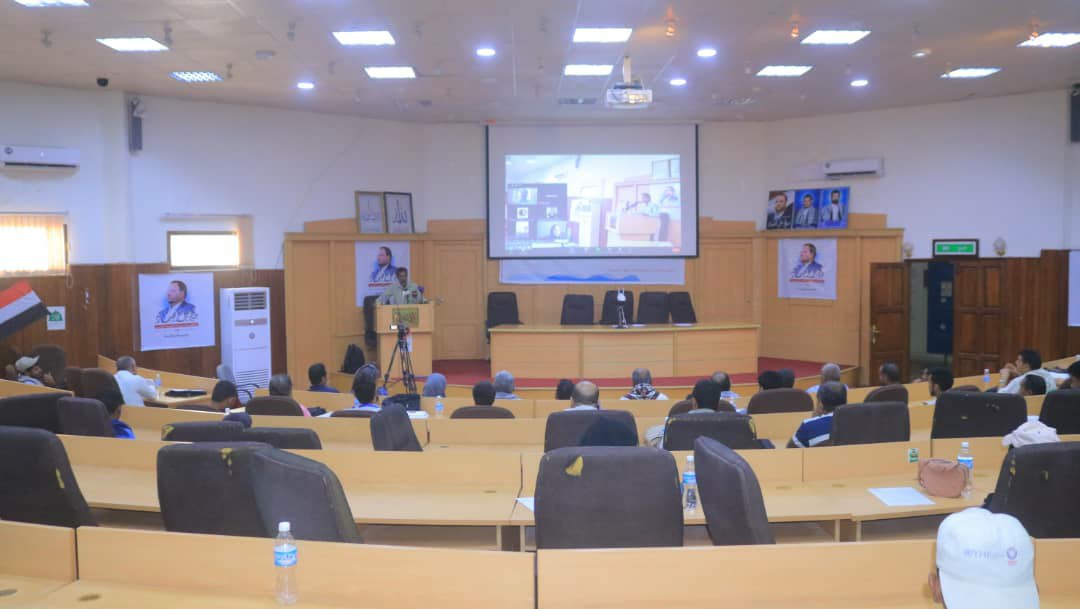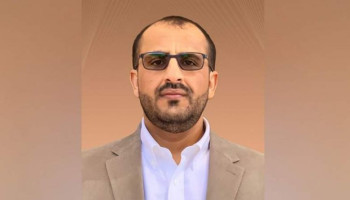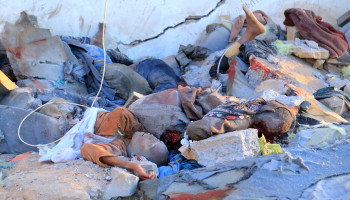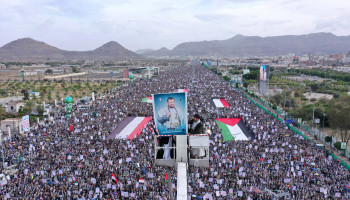A regional solidarity symposium was held in Hodeida province, entitled "Yemen absent from international humanity and its agenda", organized by the Executive Unit of the National Vision at the Ministry of Human Rights.
The symposium focused, with the participation of a number of researchers and heads of centers and international organizations from outside Yemen, through the Zoom window, through two axes on the inhumane crimes against the Yemeni people by the aggression coalition, and the people's right to live a decent life and the right to defend it.
At the symposium, Minister of Human Rights Ali Hussein Al-Dailami reviewed the hidden agenda that is being run in the UN Security Council, the United Nations and the Human Rights Council regarding the aggression against Yemen, the American and British hegemony and the old influence on the international decision.
He touched on the brutal crimes committed by the countries of the American, Saudi, and Emirati aggression against children, women, and the elderly, and the targeting of civilian objects, in which weapons, cluster bombs, and American, British, and Israeli missiles were used.
Minister Al-Dailami stressed that all documented evidence of the participation of these countries in the aggression against Yemen has become clear and exposed, indicating that the international justice system has never had any victory throughout history in favor of the grievances of countries that are subjected to wars and attacks.
He explained that the United Nations has become fully indicted after eight years of aggression against Yemen, and has become a partner in feeding the siege on the Yemeni people, pointing out that the course of international justice is under the control of the colonial countries that commit the most heinous crimes against peoples.
The Minister of Human Rights referred to the absence of humanity and international conscience towards the serious repercussions that befell the Yemeni people, which affected all life's capabilities over the past eight years, citing the political agenda and ambitions to plunder Yemen's wealth and resources.
While the Undersecretary of Hodeida Governorate for Culture and Information Affairs, Ali Qishr, reviewed in the symposium, which was attended by the Undersecretary of the Governorate, Muhammad Hulaysi, some of the human tragedies that the governorate's directorates were exposed to, and the consequent displacement, exodus, and worsening of the humanitarian situation.
For his part, Head of the Executive Unit of the National Vision at the Ministry of Human Rights, Dr. Aref Al-Amiri, pointed out the importance of spreading the suffering of the Yemeni people by forming local and international partnerships to show and communicate the grievances of the Yemeni people.
He stressed the importance of strengthening communication mechanisms with jurists and activists and working to update information and data on the violations and crimes of the countries of aggression against the Yemeni people, pointing to the ministry's strategy during the next stage and its work mechanisms regarding these crimes and violations.
The first session of the symposium witnessed the presentation of working papers presented by the coordinator of international conferences at the Arab and Free Writers Forum, Hassan Murtada, and the head of the Amman Center for Human Rights Studies, Dr. Nizam Assaf, through the Zoom window, and the political researcher in London, Dr. Ahmed Al-Zein, and the ambassador for world peace in advocacy for prisoners - our prisoners are a responsibility in Damascus, Dr. Daham Al-Taha, and the political and human rights researcher in Beirut, Rabab Taqi, and the political and human rights activist in Beirut, Maryam Dolaby.
Where the international brutality towards the forgotten war on Yemen was reviewed, and its hidden agenda and colonial goals exposed under American cover and Western countries to occupy strategic geographical and military sites and important sea ports were refuted, and the justice of the cause of the Yemenis was emphasized.
During the second session, two working papers on the humanitarian situation in Yemen and the right of the Yemeni people to live a decent life were reviewed by the Director General of the Supreme Council for Humanitarian Affairs and International Cooperation branch in Hodeidah, Jaber Al-Razehi, and the Dean of the Faculty of Arts at the University of Hodeidah, Dr. Abdel Ellah Abu Ali, and the director of the Human Rights Office in the province, Zain Ezzi.
Symposium in Hodeida entitled "Yemen absent from international humanity and its agenda"
الجمعة, 03 مارس 2023







